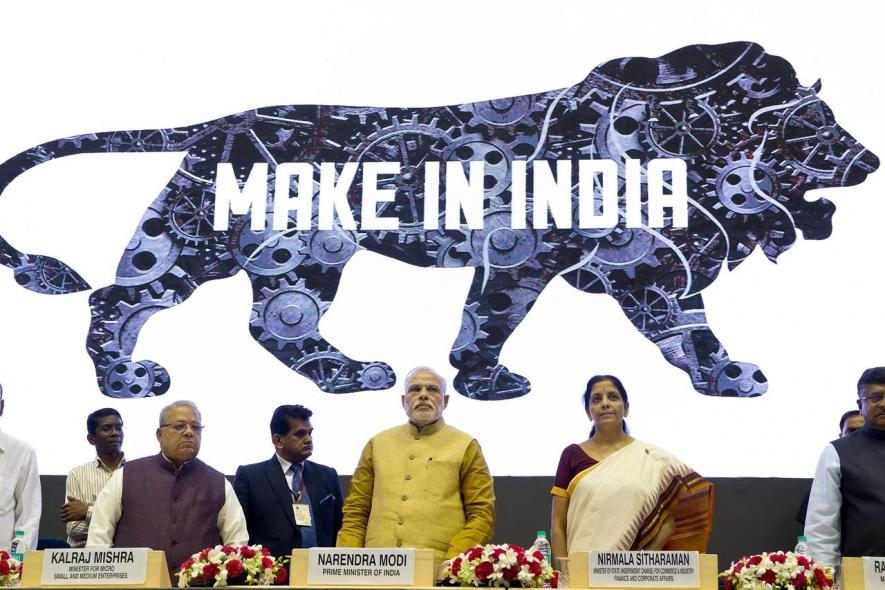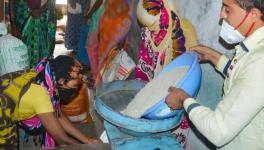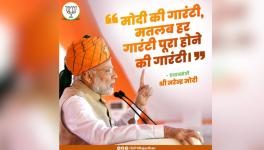World Bank’s False Praise Pleases Besieged Modi

A charming little bromance seems to be brewing between the World Bank and India’s Modi-led government. A series of reports by the World Bank has praised Modi for various kinds of “reforms”. The latest is the so called “Doing Business” report of the World Bank which lavishes praise on the Modi govt. for making it easier to do business in India. This report, an annual affair for the past 19 years, says that Modi’s India has jumped from a ranking of 130 last year to 100 this year, among 190 countries. Modi quickly tweeted his appreciation.
What the report is talking about is how business friendly, market oriented and profitable it is to start a business. Less regulation, less bureaucracy, less time equals more profitability and higher ranking in the report’s view. This is a typical international finance view of business which equates ‘ease’ with deregulation and freedom from oversight. Not surprisingly, the report also gives high marks to India for improving insolvency laws, that is, laws that ease the way for businesses to shut shop and swallow up bank loans or workers’ dues.
Doing business, as used by the report authors, means how easy it is to start a new business by getting various regulatory permissions quickly and to a limited extent also how easy it is to actually run the business. Parameters for measuring this include getting PAN and TAN online, getting new construction permits, getting credit, paying taxes, enforcing contracts, resolving insolvency, etc. Information was also collected on labour laws but this was dropped from final consideration.
Although the report is titled “Doing Business: Reforming to Create Jobs” the whole jobs issue is neatly ducked by the analysis. It is implied that if businesses start faster and run more, jobs will also grow. This flies in the face of India’s experience for the past decade and a half which saw an abysmal job growth of just 2% between 2001 and 2011 which slumped further to about 1% in 2012 and 2015. Through this period, which saw 37 “reforms” being initiated, first by UPA govt. and then by the Modi govt., business was supposed to be flourishing with the economy growing at an average 7% per annum. There is no connection between jobs and World Bank style reforms.
The report conveniently ignores that credit flow growth to industries, including SMEs, and to service sector is at an all time low, construction activity is in a slump and exports are falling. On all these counts, the report gives high marks to India.
Deep within the mass of data and fine print available online, it turns out that the India section was worked out by researchers from World Bank taking the views of 516 ‘contributors’ in two cities, Mumbai and Delhi. These ‘contributors’ are no less that a bunch of govt. officials including municipal officials, businessmen, chartered accountants, advocates, custom agents, etc. Many of them work for the same firms.
In other words, the report is limited to only two cities in the country and, within them, to the views of 516 individuals. Of course, these people will have some sense of what is going on but do they really know everything? And, are they willing to say everything? Will, for instance, a New Delhi Municipal Corporation employee really say that getting permits for construction is difficult in his jurisdiction?
The report includes information up to June 2017 except for paying taxes for which data is only up to December 2016. This measure has see India improve its ranking and performance dramatically. But after demonetization and especially GST implemented this year, this would have gone for a toss. Latest figures show that just 55% of those who registered for paying GST were actually able to pay it, partly because of the slowdown and partly because of cumbersome process of payment.
All this implies that the whole idea of “doing business is easier in India” that World Bank and Narendra Modi are propagating is based on a very flimsy footing, limited in scope and scale of information, skewed towards metropolitan, service sector type businesses. It is blissfully negligent of about 4.5 crore (45 million) non-agricultural enterprises that operate in India (6th Economic Census, 2016) leave aside their troubles and travails.
That is why it seems that this is part of a bromance, where false praise is fair.
Disclaimer: The views expressed here are the author's personal views, and do not necessarily represent the views of Newsclick.
Get the latest reports & analysis with people's perspective on Protests, movements & deep analytical videos, discussions of the current affairs in your Telegram app. Subscribe to NewsClick's Telegram channel & get Real-Time updates on stories, as they get published on our website.
























